| Type | Standard / Implementation Specification | Standards Process Maturity | Implementation Maturity | Adoption Level | Federally required | Cost | Test Tool Availability |
|---|---|---|---|---|---|---|---|
|
Standard
|
Final
|
Production
|
Yes
|
Free
|
N/A
|
||
|
Standard for observation values
|
Final
|
Production
|
Yes
|
Free
|
N/A
|
| Limitations, Dependencies, and Preconditions for Consideration |
Applicable Value Set(s) and Starter Set(s)
|
|---|---|
|
|
Comment
Submitted by mattreid on
The AMA requests that the…
The AMA requests that the Current Procedural Terminology (CPT) code set be added to the standards listed in Section I: Representing Depression. CPT code 96127 identifies patient screening through a behavioral assessment for depression. CPT code 99483 includes an assessment for depression within the cognitive care plan. CPT code 96127 includes an assessment for depression with this developmental/behavioral screening and testing.
In addition, CPT Category II code 1040F, 2060F, and 3088F – 3093F identify evaluations of major depressive disorder. CPT Category II codes 1220F, 3351F – 3354F, 3725F identify a patient screened for depression within the treatment of other clinical conditions. CPT Category II codes 4060F – 4067F identify various services provided depression.
CPT is a comprehensive and regularly curated uniform language that accurately describes medical, surgical, and diagnostic services and provides for reliable communication among users. It has an extremely robust and mature development process with open and transparent meetings and clinical input from national medical specialties and relevant stakeholders. It is the most widely adopted outpatient procedure code set. Use of the CPT code set is federally required under HIPAA.
Submitted by mattreid on
General comment on social, psychological, and behavioral data
The American Medical Association appreciates the opportunity to comment. Coding systems like SNOMED CT are designed to capture granular clinical data accurately. While it is possible to convert granular clinical data to ICD-10-CM (e.g., SNOMED CT -> ICD-10-CM), the reverse (e.g., ICD-10-CM -> SNOMED CT) is not reliable.
Where ICD-10-CM may be the best choice to meet specific needs (e.g., public health reporting or administrative forms for payors), there are means whereby ICD-10-CM codes can be computed from the more specific clinical data provided by code systems like SNOMED CT.
For these reasons, where there are established (legacy) code systems, we should continue to support them. However, where possible, we should also consider the graceful evolution to codings systems (e.g., SNOMED CT) that more accurately support granular clinical data.
Submitted by cmcdonald on
Since this LOINC code and…
Since this LOINC code and answer set has been developed (30 behavior and functional status variables suggested by the IOM report and adopted for requirement in the last MU NPRM), the adoption level could now be very high.


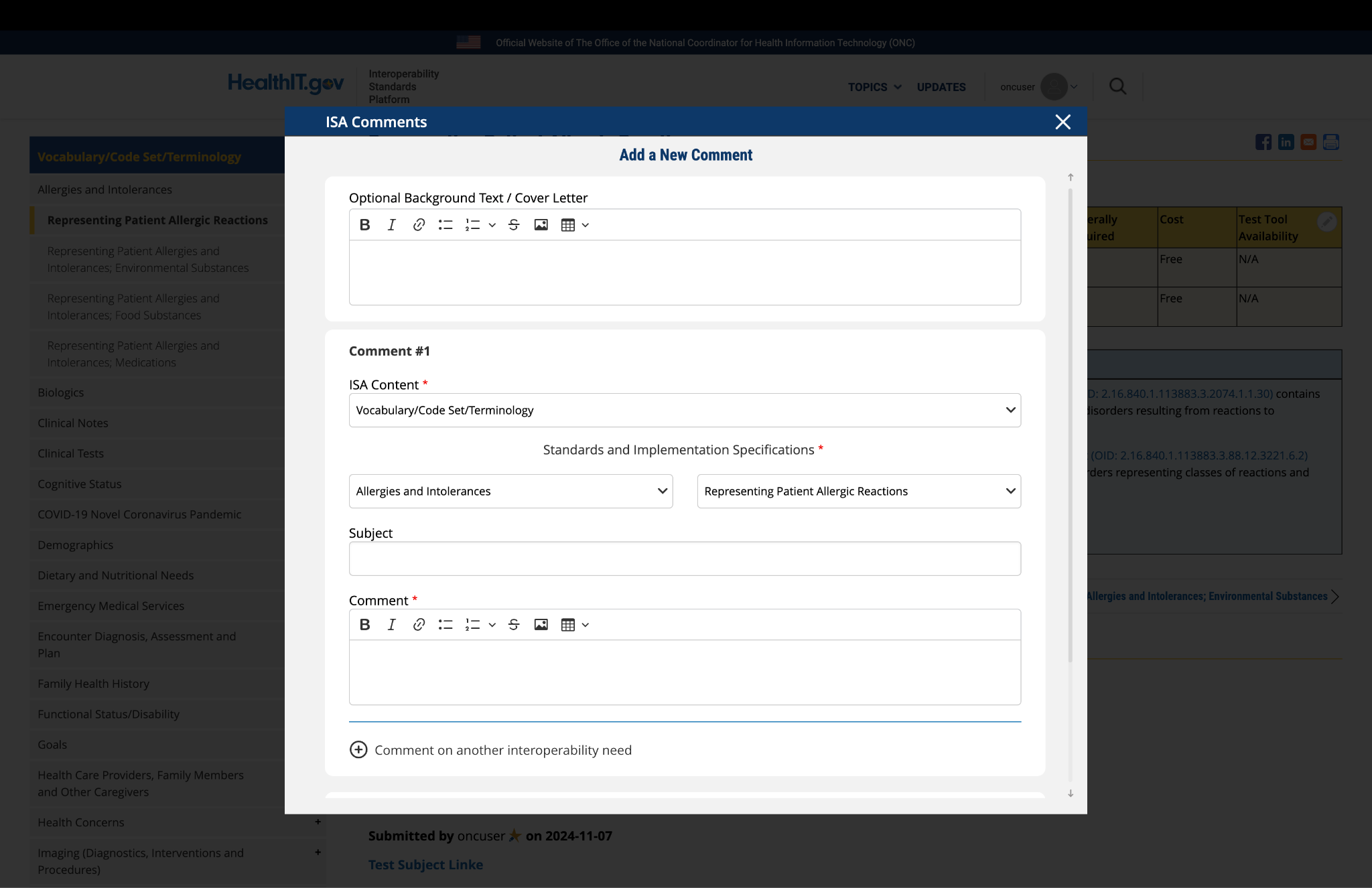

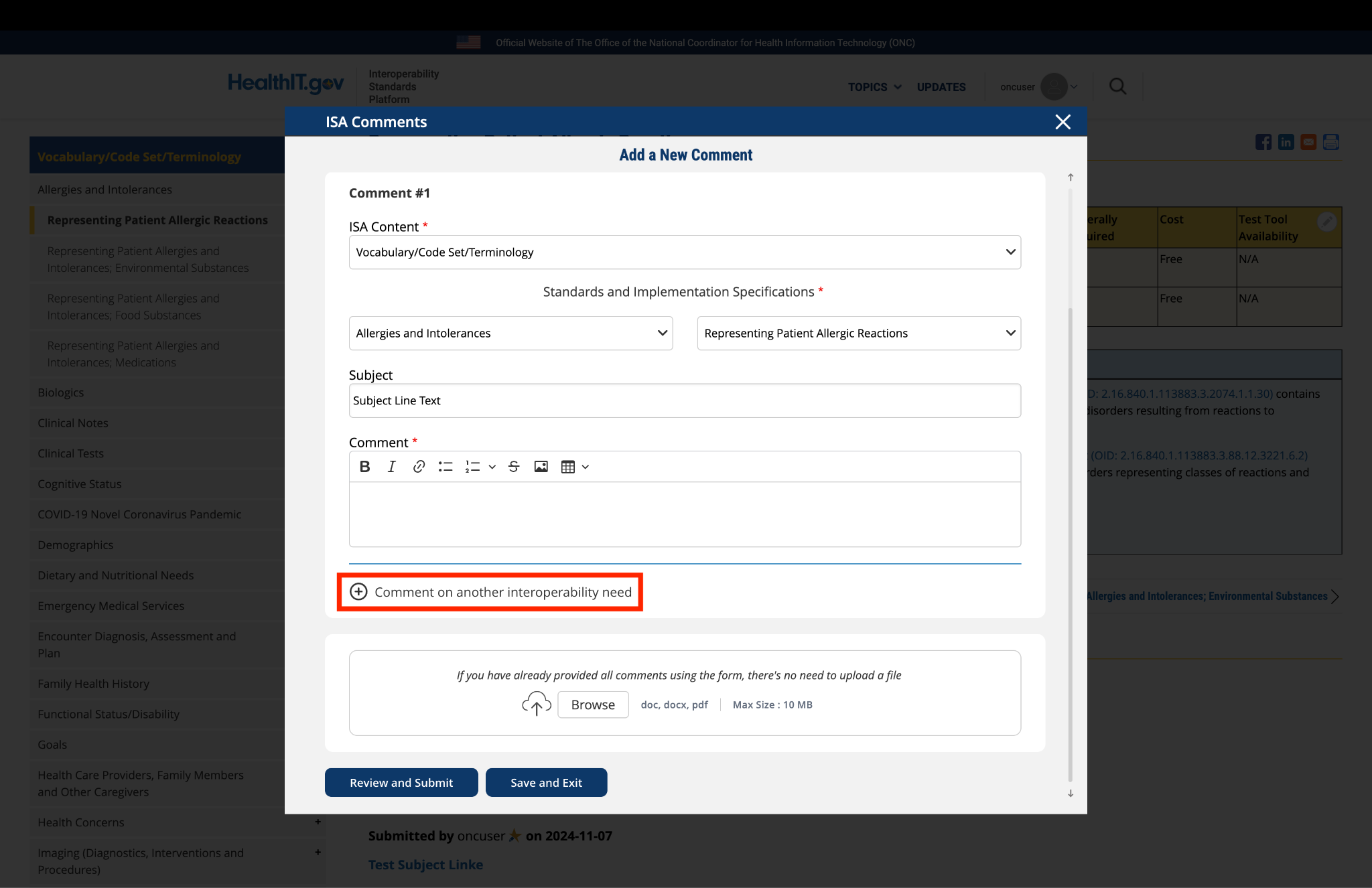
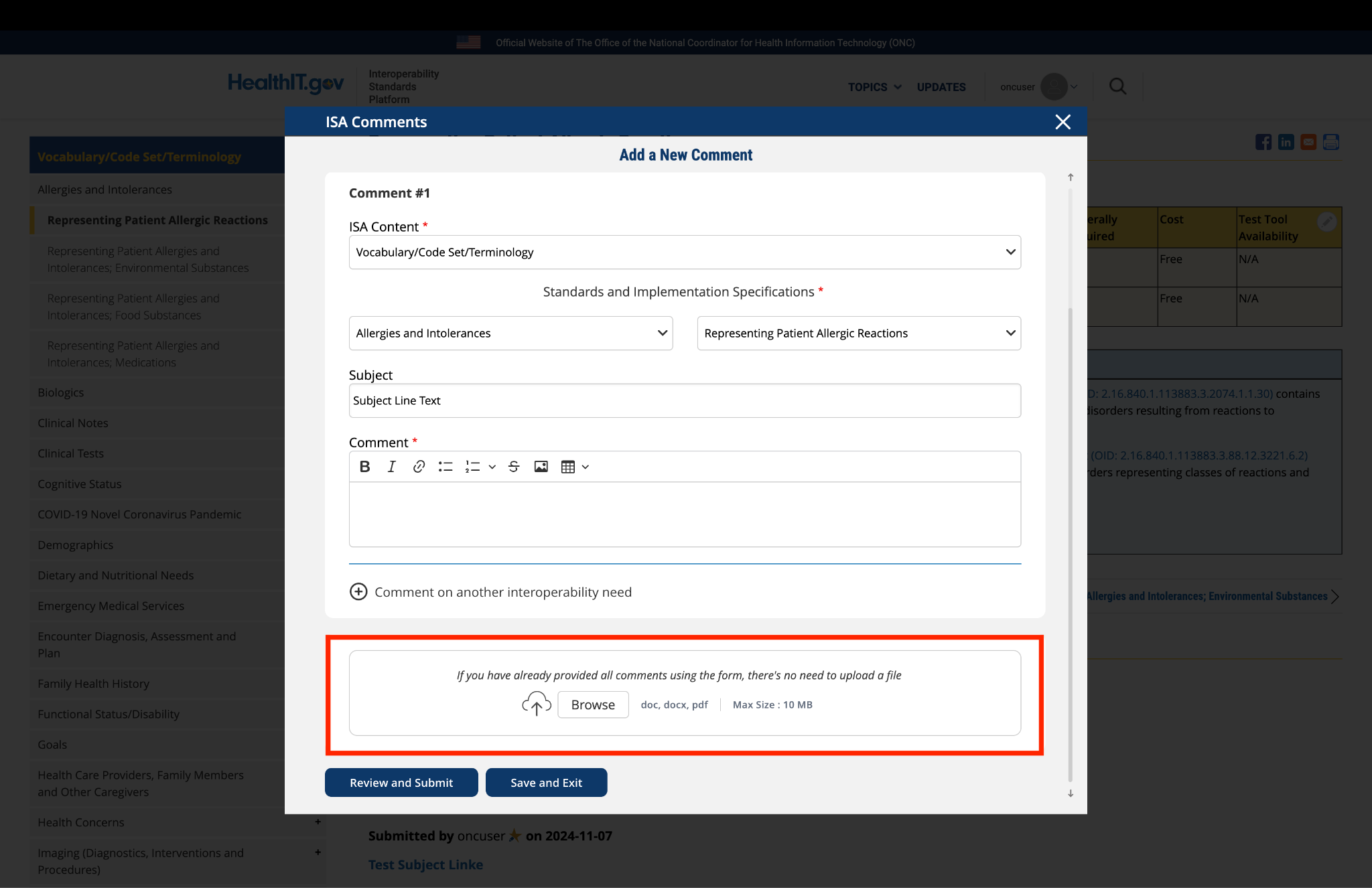
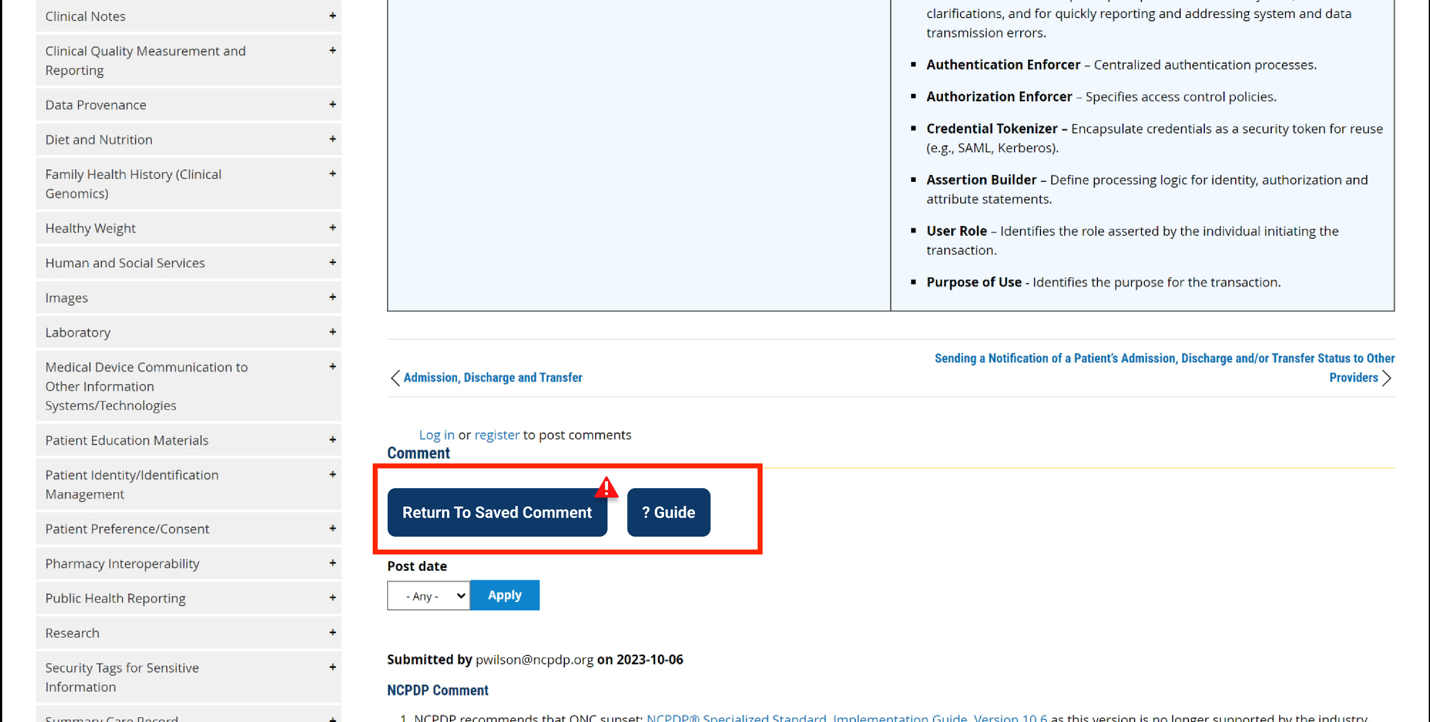
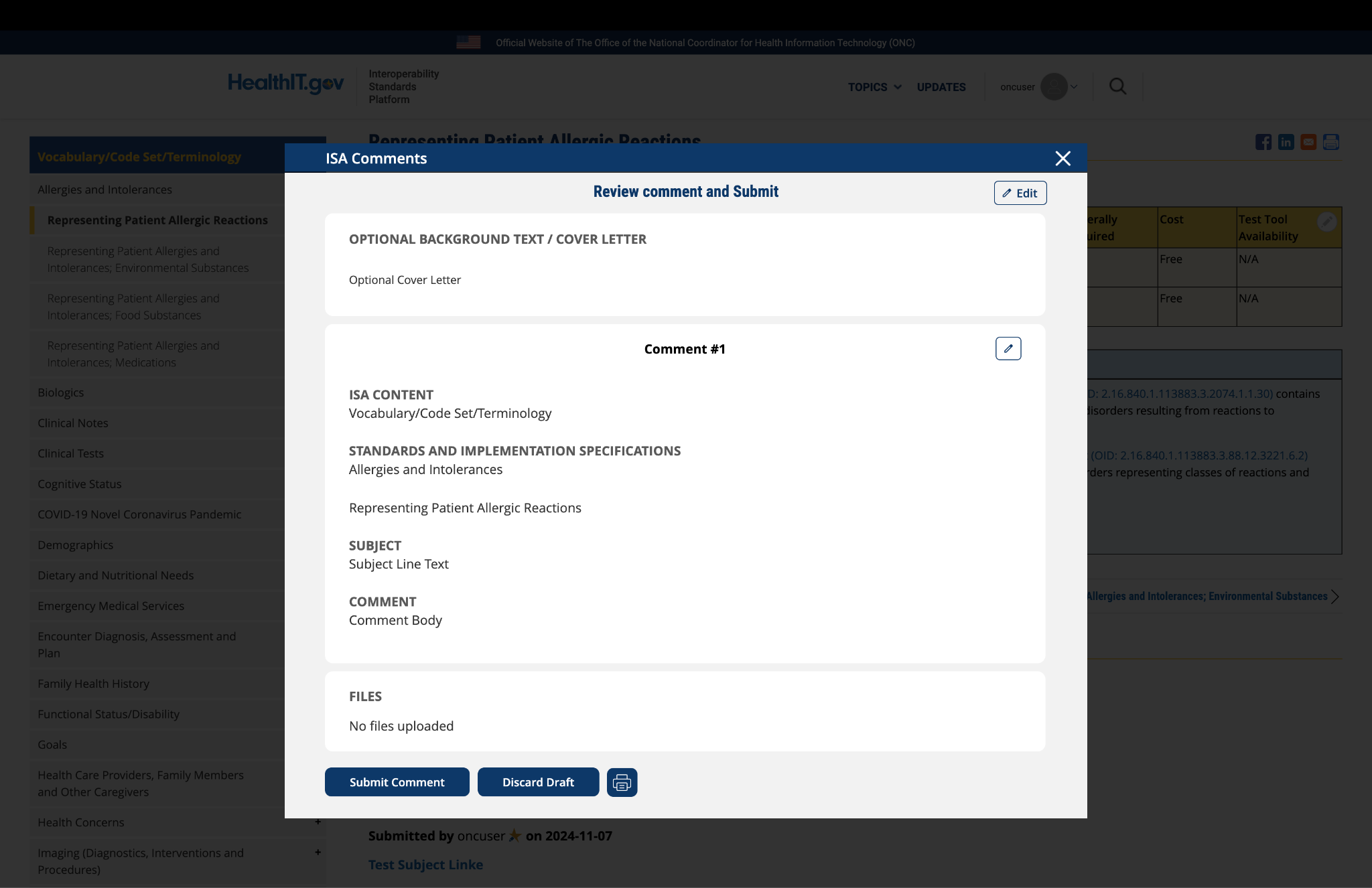
Submitted by mattreid on
The AMA requests that the…
The AMA requests that the Current Procedural Terminology (CPT) code set be added to the standards listed in Section I: Representing Depression. CPT code 96127 specifically identifies the screening of a patient within a behavioral assessment for depression. CPT code 99483 includes an assessment for depression within the cognitive care plan.
These identified CPT codes were designed based on objective criteria for evaluating and assessing the severity and co-morbidities associated with the assessment and treatment of depression that should be listed as a standard for this interoperability need.
CPT is a comprehensive and regularly curated uniform language that accurately describes medical, surgical, and diagnostic services and provides for reliable communication among users. It has an extremely robust and mature development process with open and transparent meetings and clinical input from national medical specialties and relevant stakeholders. It is the most widely adopted outpatient procedure code set. Use of the CPT code set is federally required under HIPAA.